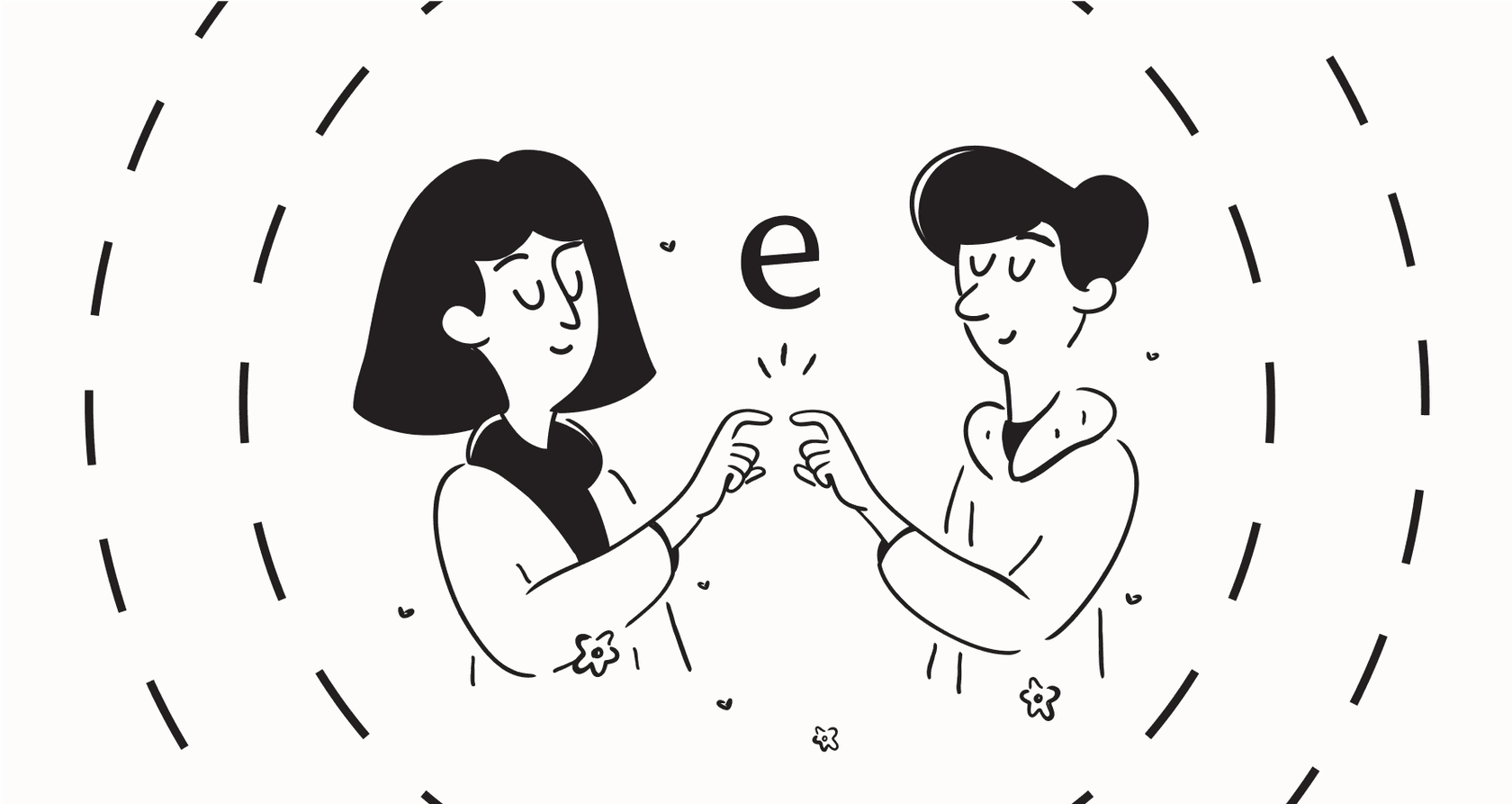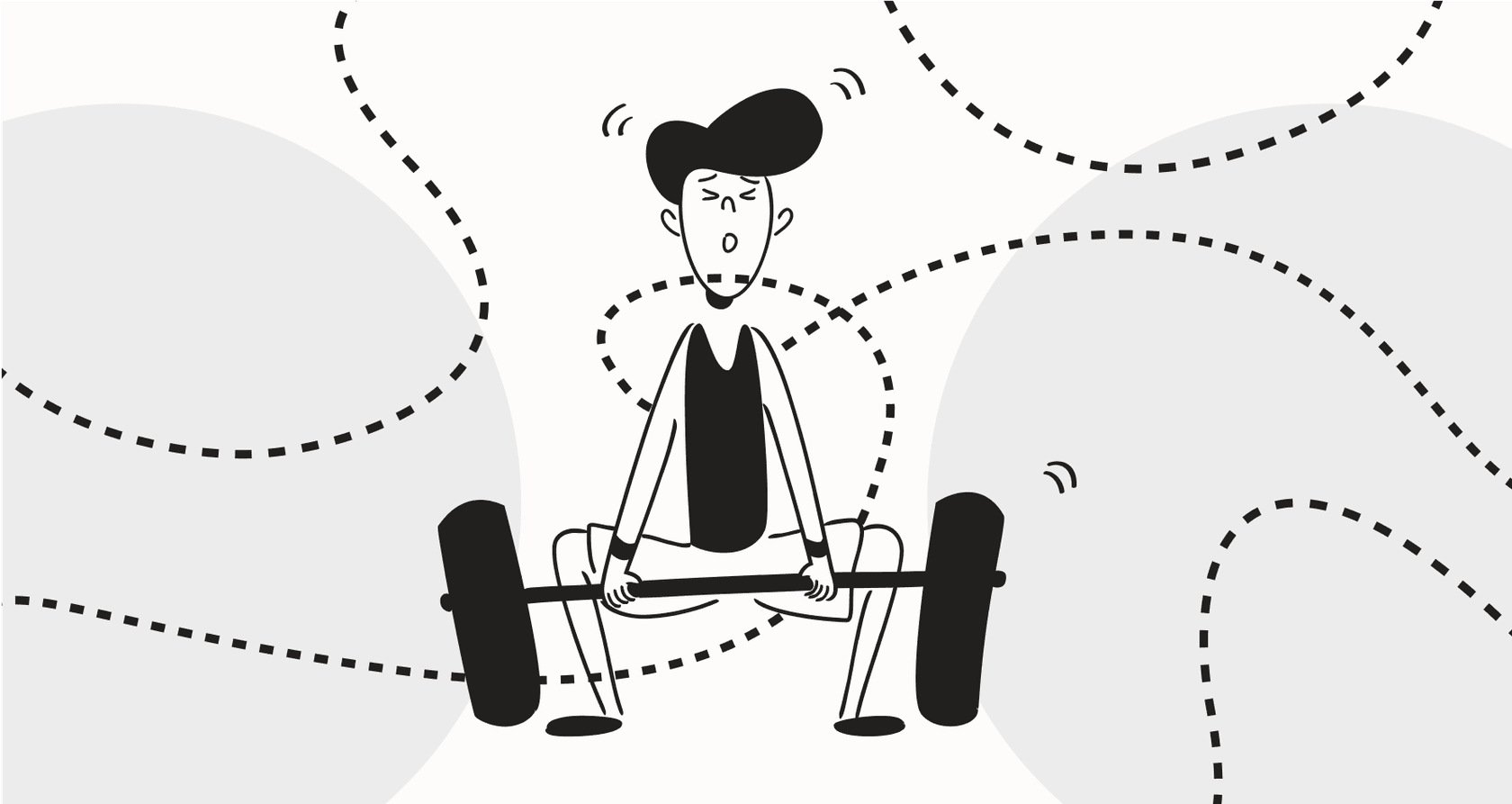I tested the top 7 options for the best sales automation platform: Here’s what I actually found in 2025

Kenneth Pangan
Last edited August 25, 2025

If you’re in sales, you’re probably spending way too much time on admin and not enough time actually selling. Between logging activities, trying to qualify leads, and digging through old documents for that one piece of product info, the day just disappears. CRMs helped get things organized, but they never really fixed the root problem of all the manual work.
This is the exact gap modern AI sales tools are built to fill. They do more than just track deals; they actively help you sell smarter. We're talking about tools that can draft outreach emails, qualify visitors on your website, and give your team instant answers to tough questions, right when they need them.
I’ve spent the last few weeks in the trenches, testing the top platforms to see which ones live up to the hype. This guide is the result of that, a no-fluff breakdown of the 7 best AI sales automation tools for 2025 to help you find one that will genuinely help your team hit its numbers.
So what is an AI sales automation platform?
A classic Sales Force Automation (SFA) tool is designed to automate simple, repetitive tasks. Think sending a follow-up email sequence or logging a call. An AI sales automation platform uses artificial intelligence to go a step further, it doesn't just automate tasks, it helps optimize your whole sales process.
It’s kind of like the difference between a basic calculator and financial modeling software. They both work with numbers, but one just gives you an answer while the other gives you insights, predictions, and recommendations.
Here’s a taste of what these AI platforms can do:
- Listen in on sales calls and give reps real-time coaching.
- Score leads based on how likely they are to actually convert, so you can focus on the best prospects.
- Write personalized outreach emails and messages at scale.
- Forecast your sales with a much higher degree of accuracy.
- Pull instant answers to complex product questions from all your scattered company documents.
These tools plug into your current CRM and communication channels to create a smooth workflow, letting your team get back to what they’re best at: building relationships and closing deals.
How I picked the best sales automation platform for this review
To get past the marketing buzz, I judged every platform on a handful of things that really matter to a sales team on the ground.
- What the AI actually does: Does the platform use AI in a useful way? I looked for real, advanced features like generating personalized content, smart lead scoring, and finding knowledge automatically, not just setting up basic "if-then" workflows.
- Plays well with others: A good tool shouldn't force you to tear down your existing tech stack. I focused on platforms that easily connect with common CRMs, helpdesks, and knowledge bases.
- How deep the automation goes: Can you build complex, multi-step automations without calling in a developer? The best tools give you a lot of control to customize workflows.
- How fast you see results: How quickly can a team get up and running and see a real impact? Platforms with self-serve setup and risk-free trial modes got extra points here.
- No-nonsense pricing: I looked for clear pricing without weird hidden fees that penalize you for being successful.
A quick comparison of the top 7 sales automation platform options
| Platform | Best For | Key AI Feature | Starting Price |
|---|---|---|---|
| eesel AI | Automating sales chats & knowledge | AI Internal Chat that answers sales questions instantly in Slack/Teams | $299/month |
| Outreach | Enterprise revenue workflows | AI-driven deal insights and sales forecasting | Custom Pricing |
| Salesforce Sales Cloud | Data-driven pipeline management | Einstein AI for lead scoring and predictive forecasting | $175/user/month (Enterprise) |
| Dripify | LinkedIn and email automation | Automated, personalized drip campaigns | ~$59/month |
| Lindy.ai | Building custom AI sales agents | No-code AI agent builder for custom workflows | $49.99/month |
| Keap | Small business sales and marketing | All-in-one CRM with a simple automation builder | ~$199/month |
| Pega Sales Automation | Intelligent, guided selling | Next-best-action AI recommendations for reps | Custom Pricing |
The 7 best sales automation platform options in 2025
Alright, let's get into the details. I spent time with each of these tools to understand their strengths, weaknesses, and who they’re truly built for.
1. eesel AI: A sales automation platform best for automating sales communication and knowledge
eesel AI is different from the rest of the list. It’s not a CRM. Instead, it’s an AI layer that sits on top of your existing tools to automate two of the biggest time-sinks in sales: communication and finding information. It connects directly to the places your team already works, like Slack and your helpdesk, so you start seeing value in minutes.
For sales teams, it solves a few huge problems:
- An AI chatbot that qualifies leads: You can put the AI chatbot on your website, and it acts like a 24/7 sales development rep. It can answer questions by pulling info from your Shopify product list or help center, qualify leads on the spot, and even book demos with the right person on your team.
- An internal AI chat for instant answers: This is its secret weapon for sales. Reps can ask complicated questions about products, security, or pricing right in Slack or Microsoft Teams and get immediate, accurate answers. The AI pulls from all your company knowledge, whether it’s in Confluence, Google Docs, or old support tickets. No more bugging the engineering team right before a big demo.
- It connects to your whole stack: eesel AI doesn't make you switch CRMs or change how you work. It connects to over 100 tools, bringing all your scattered information together and making it useful.
It's a great fit for teams who want to add powerful, easy-to-use AI to their current sales process without a massive overhaul.
Pros:
- You can get it live in minutes with a simple, self-serve setup.
- It pulls knowledge from dozens of sources you already use (Confluence, Google Docs, Notion, etc.).
- Gives sales reps instant, trustworthy answers right inside Slack or Teams.
Cons:
- It isn’t a CRM for managing your pipeline; it’s built to work alongside one.
Pricing: Starts at $299/month for the Team plan, which covers up to 1,000 AI interactions.
2. Outreach: A sales automation platform best for enterprise revenue workflows
Outreach is a beast of a platform built for large sales organizations. It pulls together sales engagement, conversation intelligence, and revenue forecasting into one place. Its AI, "Kaia," joins live calls to help reps, suggests follow-ups, and gives managers a deep look into deal health and team performance.
While it’s incredibly powerful, Outreach is a serious commitment. It’s a heavy-duty tool that takes time and resources to set up properly. It’s fantastic for managing complex sales cycles with lots of touchpoints, but it might be overkill for smaller teams. And while it’s great at analyzing conversations, it still needs that information to be accessible somewhere. For knowledge buried in wikis or docs, you’d still want a tool like eesel AI to make it instantly searchable for your reps.
Pros:
- An all-in-one platform that covers the entire sales cycle.
- Very strong AI for call analysis and forecasting.
- Excellent for managing big, spread-out sales teams.
Cons:
- Expensive, and the implementation can be a major project.
- Doesn't solve the issue of accessing siloed company knowledge.
Pricing: Custom pricing, mostly aimed at enterprise companies.
3. Salesforce Sales Cloud: A sales automation platform best for data-driven pipeline management
Salesforce is the 800-pound gorilla of CRMs, and Sales Cloud is its core offering for sales teams. With its Einstein AI, it provides some seriously powerful features like predictive lead scoring, opportunity insights, and automatically capturing activities. It’s designed to be the single source of truth for your customer data.
The main challenge with Salesforce is that its AI is built to live inside its own world, and configuring it can get complicated. If your sales team needs a quick answer from a product brief in Confluence or a marketing update in Google Docs, they’re out of luck. This is a common reason people use a tool like eesel AI alongside it, to bring all that external knowledge into the sales team’s daily workflow in Slack.
Pros:
- A massively customizable and scalable CRM.
- Powerful AI features for forecasting and lead scoring.
- A huge ecosystem of third-party apps and integrations.
Cons:
- Can get expensive and often requires a dedicated admin to manage.
- The AI is almost entirely focused on the data you have inside Salesforce.
Pricing: The Enterprise plan starts at $175 per user per month.
4. Dripify: A sales automation platform best for LinkedIn and email automation
Dripify is a highly specialized tool for one thing: automating top-of-funnel prospecting on LinkedIn and via email. It lets you build out complex "drip" campaigns that act like a human, sending connection requests, messages, and follow-ups on their own. Its real strength is personalizing this outreach on a massive scale.
It's fantastic for starting conversations, but that’s where it stops. Once a prospect writes back, the automation ends, and it’s back to manual work to answer questions and nurture that lead. It works best when it’s part of a larger tech stack where other tools take over once a real conversation begins.
Pros:
- One of the most powerful and safest LinkedIn automation tools out there.
- Lets you create very advanced, multi-step outreach sequences.
- A great way to generate a high volume of leads.
Cons:
- It's only for top-of-funnel outreach.
- Doesn't help with the rest of the sales process, like nurturing or closing.
Pricing: Plans start around $59 per user per month.
5. Lindy.ai: A sales automation platform best for building custom AI sales agents
Lindy.ai has a unique angle: it lets you build your own custom AI 'agents' to automate very specific tasks. Using its no-code builder, you can create agents that do things like research prospects online, update your CRM, draft follow-up emails, and qualify leads based on your criteria. It's incredibly flexible.
That flexibility is its biggest strength, but it can also be a weakness. To build agents that actually work well, you need a really clear understanding of your sales process, and there's a bit of a learning curve. For teams that just want something that works out of the box and learns from their existing documents with zero setup, a tool like eesel AI will get you there much faster.
Pros:
- Super flexible and can be customized for almost any task.
- The no-code platform means you don't have to be a developer to use it.
- Can automate a huge range of unique sales workflows.
Cons:
- It takes time and effort to build and tweak agents to be effective.
- Can be less intuitive than a pre-built solution for common problems.
Pricing: Starts at $49.99 per month for the Starter plan.
6. Keap: A sales automation platform best for small business sales and marketing
Keap (which you might remember as Infusionsoft) is an all-in-one platform that rolls CRM, marketing automation, and sales pipeline management into one package. It's built specifically for small businesses and entrepreneurs. The visual campaign builder is really easy to use and lets you quickly set up automated follow-ups, lead nurturing emails, and appointment scheduling.
Keap is a great choice for businesses that want a simple, single tool to manage everything. The trade-off is that as you grow, you might find its built-in AI a bit limited. At that point, integrating a more specialized AI tool for knowledge management can help your sales team stay efficient without having to migrate to a more complex enterprise system.
Pros:
- A friendly interface with a drag-and-drop campaign builder.
- Combines CRM, sales, and marketing tools in one spot.
- Offers good value for small businesses.
Cons:
- Doesn't have the advanced AI features you'd find in enterprise tools.
- The reporting and analytics aren't as deep as some competitors.
Pricing: Plans start at $199 per month for up to 2 users.
7. Pega Sales Automation: A sales automation platform best for intelligent, guided selling
Pega Sales Automation is all about "next-best-action" intelligence. The platform uses AI to look at customer data and the current context of a deal to tell sellers exactly what they should do next. It's especially popular in large, complex companies and regulated industries where following a specific process is a big deal.
Pega's AI is great at giving process guidance, but its knowledge is usually limited to the data inside the Pega platform itself. A salesperson's questions are rarely just about CRM data; they need info from product docs, marketing PDFs, or internal wikis. A tool that can connect to all those external sources is key to getting them complete answers quickly.
Pros:
- Powerful AI that gives reps "next-best-action" recommendations.
- Can automate very complex, end-to-end sales processes.
- Has strong features for compliance and security.
Cons:
- Can be a complex and expensive system to implement.
- The AI's knowledge is typically stuck within the Pega ecosystem.
Pricing: Custom pricing based on your company's needs.
How to choose the right sales automation platform for your business
Feeling a bit overwhelmed? Don't be. Picking the right tool really just boils down to three things:
- Focus on integration, not just features. Your new platform has to play nice with your existing tools, especially your CRM. Any tool that forces you to "rip and replace" everything is going to cause a massive headache. Look for things that make what you already have better.
- Solve your single biggest problem first. What's your team's main bottleneck? Are they slow to respond to new leads? Or are they constantly wasting time searching for information? Figure out your biggest pain point and pick a tool that solves that problem directly.
- Prioritize getting results quickly. You can't afford to wait six months to see if a tool is working. Look for platforms that offer self-serve setup, free trials, or simulation modes. The ability to test an AI on your own data before you commit, like eesel AI allows, is a huge plus because you can buy with confidence.
Level-up your sales process with a sales automation platform that actually helps
The best setup for sales automation today usually isn't one giant piece of software. It’s a smart stack of tools where each one is great at its specific job. While traditional platforms are good for managing your pipeline, the real advantage comes from automating the communication and knowledge sharing that happens all day long.
This is where AI is having the biggest impact. By giving your sales team instant access to every bit of company knowledge and automating routine chats, you free them up to focus on what matters: building relationships and closing deals.
If you’re ready to give your team an AI that works where they work and gets them answers in seconds, not hours, you can try eesel AI for free. You can connect your knowledge sources and have it running in just a few minutes.
Frequently asked questions
Your CRM is primarily for organizing customer data and tracking deals. An AI dedicated sales automation platform actively helps you sell by automating tasks like lead qualification, drafting outreach, and providing instant answers to complex sales questions, freeing up your reps to focus on closing.
Not necessarily. The best platforms are designed to integrate smoothly with your existing tools, especially your CRM. Look for tools that act as an AI layer on top of your current stack, enhancing what you already have without forcing a big migration.
This varies by tool, but many modern platforms prioritize speed and ease of use. Tools with self-serve setup can be up and running in minutes, allowing you to connect your data sources and see value on the very first day, rather than waiting months.
Absolutely. For small teams, automation is key to competing with larger companies by maximizing efficiency. It helps reps handle more leads and reduces time spent on manual admin, allowing a small team to have a much bigger impact without a bigger headcount.
Pricing varies widely, from around $50 per month for specialized tools to thousands for enterprise systems. The key is to find a platform with transparent pricing that solves your biggest bottleneck, ensuring the productivity gains easily justify the cost.
Share this post

Article by
Kenneth Pangan
Writer and marketer for over ten years, Kenneth Pangan splits his time between history, politics, and art with plenty of interruptions from his dogs demanding attention.






